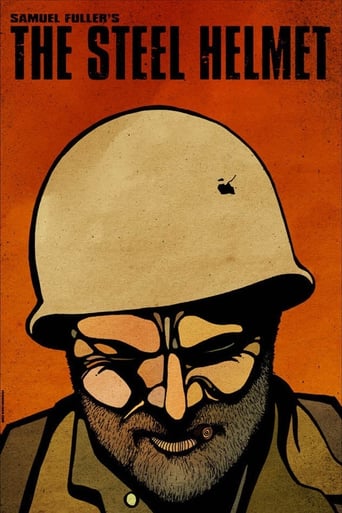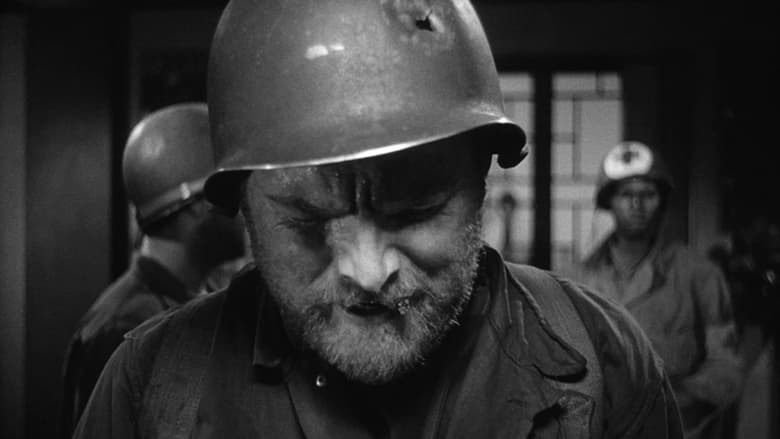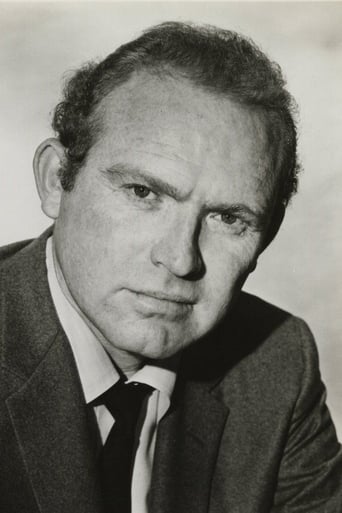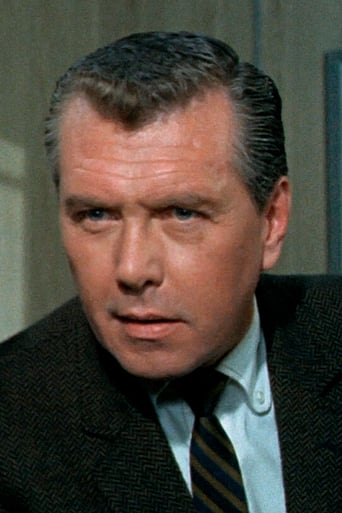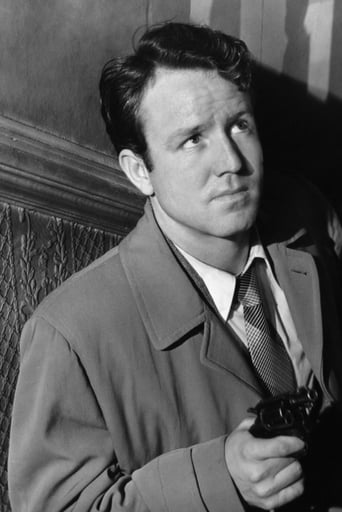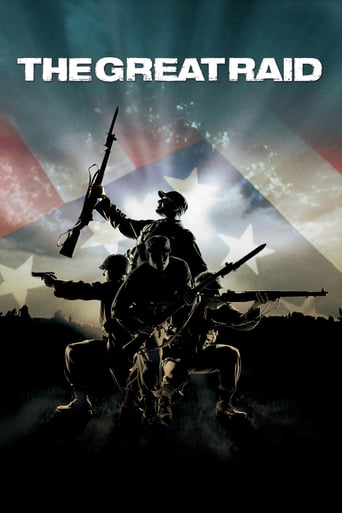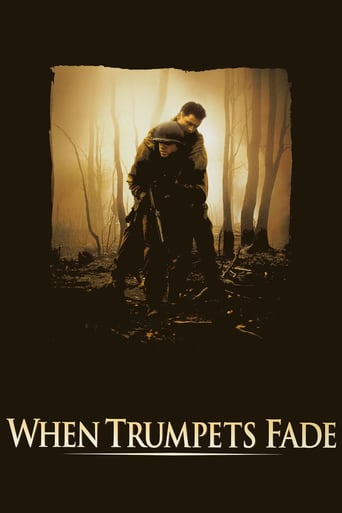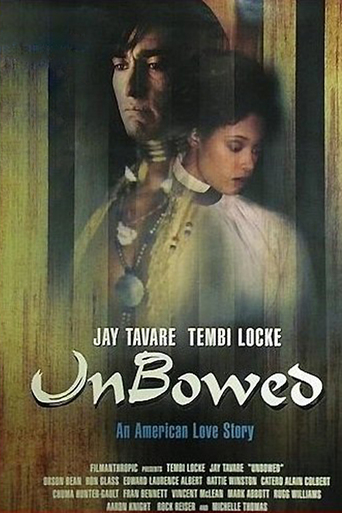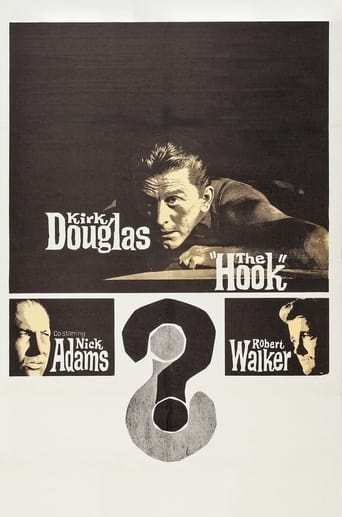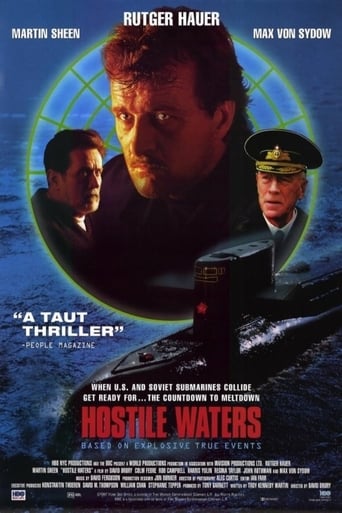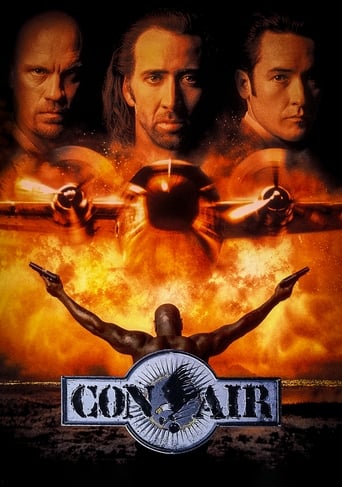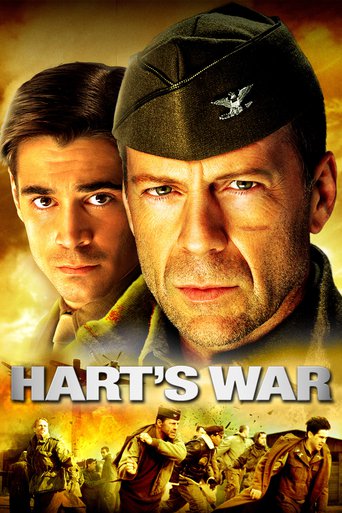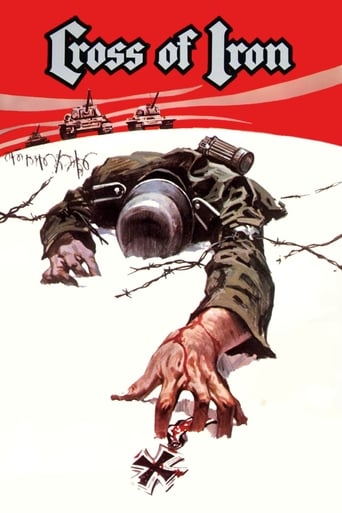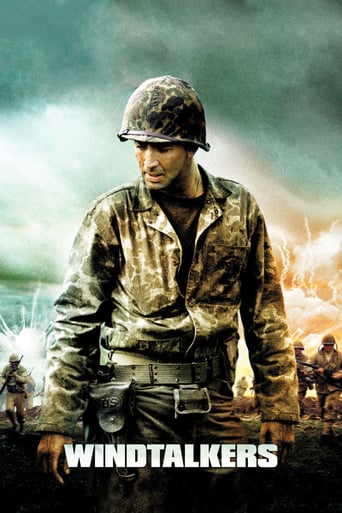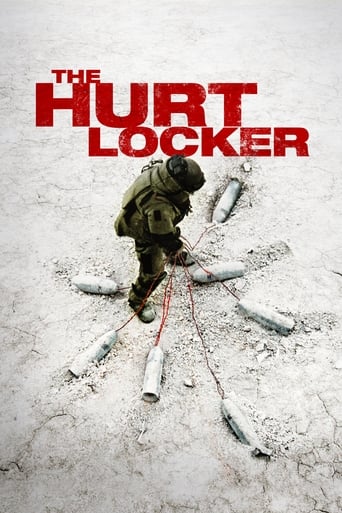The Steel Helmet (1951)
A ragtag group of American stragglers battles against superior Communist troops in an abandoned Buddhist temple during the Korean War.
Watch Trailer
Cast


Similar titles
Reviews
Very very predictable, including the post credit scene !!!
If the ambition is to provide two hours of instantly forgettable, popcorn-munching escapism, it succeeds.
The movie turns out to be a little better than the average. Starting from a romantic formula often seen in the cinema, it ends in the most predictable (and somewhat bland) way.
This is one of the best movies I’ve seen in a very long time. You have to go and see this on the big screen.
There is so much going on in a Sam Fuller Movie that the Intensity and Density beg for Wordy Discussions and In Depth Analysis. Make No Mistake, this is and has been done for Anyone Interested in this B-Movie Maverick Auteur and His Unique Form of Filmmaking.This is Fuller at His Best and Most Comfortable. He Draws from His War Experience and then Bathes the Real-Life Memories in Philosophical, Street-Smart Dialog. His Characters are Rough and Exaggerated, Full of Flesh and Vinegar, and make for some Engaging Interactions.The Korean War Film Opens (the movie was made as the U.S. was just entering the police action) with a Gruffy, Gritty, Infantry Sgt with His hands (metaphorically) "tied behind his back". Fuller might be saying that this is the way all Wars are Fought by the Grunts. The Film is one Sensational Encounter after another, as Sgt. Zack is Rescued by a South Korean Tween and they "team-up" to make Their way through No Man's Land.Joining the Two Misfits are more Rag-Tags. A Negro Medic who is Reminded that back Home He had to ride in the Back of the Bus, a Conscientious Objector, a 90-Day Act of Congress Lt., a Soldier who Wheezes and has no Hair from Childhood Rheumatic Fever, a Japanese Bazooka Man whose Family was in a WWII Internment Camp, and a Half-Wit who refuses to Speak.No One is without Flaws and Personality in a Sam Fuller Squad. The Movie was Deemed so Sympathetic to Foreign and Subversive Causes that it got Labeled Communist Propaganda by the FBI and Hoover along with Right-Wing Critics. The Director was even called to Washington D.C. to Explain Himself.Overall the Movie is a One of Kind B-Movie Masterpiece and is now Considered a Classic. Uncompromising with that Surreal Fuller Touch it is a Sight to Behold and One can only Imagine just how Powerful it was in 1951. Rousing Climax with a Touching if Hardly Sentimental Ending that is Nothing Like Anything that came before from Hollywood War Films. Essential Viewing and One of the Best War Movies.
Sgt.Zack (played memorably by Gene Evans) is the only survivor of his platoon after a mass execution by N.Korean soldiers. Rescued by a Korean boy they hook up with other stragglers caught behind enemy lines and take refuge in a Buddist Temple where an enemy major also hides. From here the story plays out as the soldiers battle both enemy and themselves in the ironic setting of a temple occupied by a towering icon of a peaceful Buddha.Shot in ten days on a meager budget Steel Helmet is a remarkably powerful and audacious treatise on war and other hot issues America faced in 1951. Independently produced, written and directed by Sam Fuller it does not shy away from topics on race, atrocity or the futility of war as it cynically eviscerates notions of glory found in the propaganda driven war films of WW 2. Fuller, a decorated veteran who landed on Normandy Beach in the first wave displayed the same type of courage during the McCarthy era by venting against the inequity faced by minorities at home willing to die for their country. No other major filmmaker had dared (before or since) to make an anti-war movie while the specific conflict raged. All Quiet on the Western Front, Paths of Glory, Apocalypse, Now and Platoon were all made after hostilities subsided. Altman's Mash was made during Viet Nam but in a Korean Conflict setting. Even the Wild West was employed (Soldier Blue, Little Big Man) as metaphor for the SEA theater. Fuller never blinked, he called it as he saw it and made no apologies. None needed when it comes to Steel Helmet. It only deserves praise.
The first movie ever made about the Korean War, filmed only a few months into its start, this film is very much influenced by director Fuller's own WWII experience. Gene Evans stars as a cigar-chomping, hard-bitten last survivor of his regiment. He joins up with a small Korean boy, whom he nicknames Short Round (obviously Spielberg and Lucas took the name for Indiana Jones' little Asian sidekick in Temple of Doom), and they eventually find a bunch of other survivors. The group holes themselves up in a Buddhist temple and create an observation post. Soon, they are surrounded by the enemy. This was obviously cheaply done, but it's extremely well done for the price. The climactic battle scene does become a little silly, though. Evans in general is good, but his prickliness and know-it-all-ness started to get on my nerves after a while. Still, very good.
Samuel Fuller's first great hard-boiled war movie doesn't seem to strike up the same controversy that it apparently did back in the 1950s. Maybe an extra fifty-five years of the United States becoming more liberal in certain stances, such as where black people can sit on a bus or if the Japanese internment camps were such a good idea, has changed the film in a certain respect. But what hasn't changed is Fuller's immediate sense of danger and drama, of the tough bond between soldiers in combat, and what it means to be patriotic in the face of the grittiest odds. I also found it a fascinating feat, especially this early in Fuller's career, to set up not only a quasi-prototype of the Fuller bad-ass that would continue on in many of his films (one definitely would see a form or two of this in the Big Red One), but criticizing this figure. And meanwhile Fuller pumps up his war film with a staggering showcase of horrific war violence which, up until the climax, is largely off-screen with only the sound effects of bullets streaming fast meant for emphasis, and the camera acting as a real presence in the room during the temple, acting as exclamation pointer and a tool for the suspense.The Fuller figure in the film, which ends up becoming the central one even amid the ensemble, is Sgt. Zack, with his scruffy beard, hard talk, and odd principles ("best in the infantry", Zack says, as you either live or die). But of all things, Fuller uses a little Korean boy, who sings the entire Korean national anthem- also Audl Yange Syne- and has a deep belief in Buddhist traditions. It's not any kind of little gimmick to garner the audience's sympathies, however, and by not calling too much attention to it there's strength in Zack's very subtle change by the end of the film. He's still going to be a bit of a brutish guy who may let his emotions get the better of him, and charges onward even when thinking he's the only real tough guy in the army. But Fuller seems to not be making him a real true-blue hero in the John Wayne sense: he's a lot more of a complicated tough-guy protagonist, who played by Gene Evans plays him convincingly as a man who's principles of strength on the battlefield get mixed up when his conscience enters into things. He remains one of Fuller's coolest and a benchmark in B war movie characters.What's so strange about the Steel Helmet ends up being how it uses so much on a minuscule budget. Shot in ten days, Fuller structured the script mostly as if it was a stage play; 2/3 of the film is set in the temple, as the characters stay low, get a run-in with a North Korean infiltrator, try and fix a radio, and generally have a lot of talks about what it is to fight in war and whatnot. It's never boring for second, even as one might wonder when, like in Night of the Living Dead, the ominous forces of the outside will come in and break up the monotony of suspense. I loved little moments like when the one soldier thinks his grenade is about to explode right on his belt if he stands up, or when Zack describes who he'd let wear his helmet based on an insane D-Day story, or when the radio operator started growing hair. Even dialog that should be dated when the North Korean asks the black soldier about discrimination in America comes off as interesting. And then, suddenly, Fuller will whip up the camera and editing into a sharp frenzy when it comes time for battle, or make it as something to almost keep the soldiers themselves on their toes. And it's something to admit as fearless to have only a hand-full of extras and a handful of special effects to make a battle scene just as great as anything in the Big Red One- which are some of the best war battles in film history.A real 'guy' movie that doesn't kid its own nature about men from varying cultures all plopped together in an insane conflict, with quick flashes of humor and sudden, unexpected violence, and a final message on the title card that will resonate long as men carry big guns and wear those helmets.

